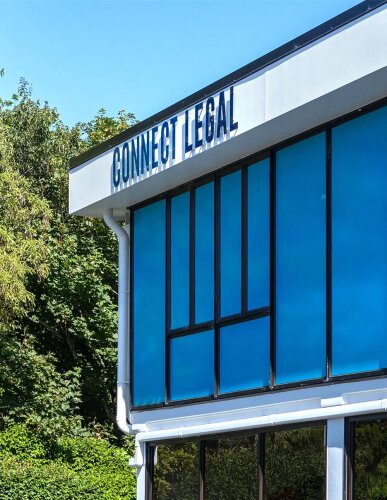Best General Litigation Lawyers in New Plymouth
Share your needs with us, get contacted by law firms.
Free. Takes 2 min.
List of the best lawyers in New Plymouth, New Zealand
About General Litigation Law in New Plymouth, New Zealand
General litigation law in New Plymouth refers to legal disputes that arise between individuals or organizations that may require resolution through the court system or alternative dispute resolution methods. This area of law covers a broad range of civil matters including contractual disputes, property disagreements, debt recovery, negligence claims, and employment issues. New Plymouth, situated in the Taranaki region, follows New Zealand's legal framework which includes statutes, regulations, and principles of common law developed through court decisions. Local law firms and practitioners handle cases from District Court up to the High Court, depending on the nature and value of the dispute.
Why You May Need a Lawyer
Many individuals and businesses in New Plymouth find themselves needing a general litigation lawyer when faced with legal challenges such as:
- Contract disputes between customers, business partners, or service providers
- Landlord-tenant disagreements over property agreements or obligations
- Debt collection or the recovery of money owed
- Negligence or personal injury claims
- Employment disputes including wrongful dismissal, workplace bullying, or pay disagreements
- Trust, estate, or inheritance disputes
- Defamation or disputes involving reputation and privacy
- Neighbourhood or boundary disputes
- Building and construction disputes
- Consumer rights or fair trading issues
Local Laws Overview
General litigation in New Plymouth is governed by national statutes such as the Contract and Commercial Law Act 2017, Fair Trading Act 1986, Property Law Act 2007, and the Employment Relations Act 2000, among others. The District Court in New Plymouth handles civil disputes involving up to 350,000 New Zealand dollars while matters over this threshold may be escalated to the High Court. There are also specific tribunals, such as the Tenancy Tribunal or Disputes Tribunal, that resolve smaller claims. Timeliness is essential as each type of legal claim is subject to specific limitation periods, meaning claims must be brought within certain timeframes after the dispute arises. The New Zealand legal system emphasizes alternative dispute resolution, including mediation and negotiation, before court action. Local rules and practice notes specific to New Plymouth courts may affect the litigation process and should be considered.
Frequently Asked Questions
What is considered general litigation in New Plymouth?
General litigation covers a wide range of civil disputes such as contract issues, property disagreements, debt recovery, employment problems, and personal injury claims. It does not include criminal matters.
What is the process for starting a legal claim in New Plymouth?
The process usually starts with sending a letter of demand or engaging in initial negotiation. If the matter cannot be resolved, a claim can be filed at the District Court, High Court, or an appropriate tribunal depending on the type and amount of the claim.
How long does it usually take to resolve a litigation matter?
The timeframe depends on the complexity of the dispute and whether it is settled out of court or requires a full hearing. Simple disputes may resolve in weeks or a few months while complex litigation can take a year or more.
What are the costs associated with general litigation?
Costs vary depending on the complexity of the case, the amount of evidence, court or tribunal filing fees, and lawyer's fees. Your lawyer can usually give an estimate of the likely costs involved.
Can I represent myself in court?
Yes, individuals can represent themselves, particularly in the Disputes Tribunal or Tenancy Tribunal. However, legal advice is recommended for more complex matters, especially in the District Court or High Court.
What are alternative dispute resolution options?
Mediation and negotiation are common alternatives to court. These methods can save time and money, and are often encouraged by courts before litigation proceeds.
Are there time limits for taking legal action?
Yes, most legal actions are subject to limitation periods. For example, contract claims usually must be brought within six years of the cause of action. Seek advice as soon as possible to avoid missing these deadlines.
What should I bring to my first meeting with a lawyer?
Bring all relevant documents such as contracts, communication records, photographs, and any previous attempts at resolving the dispute. This will help your lawyer assess your case effectively.
Can I claim legal costs from the other party if I win?
Usually, some legal costs can be recovered from the losing party, but this depends on the outcome and the judge's decision. Costs awarded often only cover a portion of actual expenses.
Where will my case be heard in New Plymouth?
Most general civil matters are heard at the New Plymouth District Court. Larger or more complex matters may be dealt with by the High Court located in New Plymouth.
Additional Resources
For more support or information regarding general litigation in New Plymouth, you may find these resources helpful:
- New Plymouth District Court − for filing documents or case hearings
- Community Law Taranaki − provides free legal advice for qualifying individuals
- Citizens Advice Bureau New Plymouth − general support and guidance on legal issues
- New Zealand Law Society − information on finding and choosing a lawyer
- Disputes Tribunal − for minor civil claims (currently up to 30,000 NZD)
- Tenancy Tribunal − for residential tenancy disputes
- Ministry of Justice − general information on New Zealand’s courts and tribunals
Next Steps
If you are facing a civil dispute or believe you may need to take legal action in New Plymouth, the best approach is to seek professional legal advice early. Contact a general litigation lawyer who practices locally to discuss your situation. Gather all related documentation and make notes of important facts. Take advantage of community resources for initial guidance if cost is an issue. Early action and informed decisions can often resolve disputes more quickly and with less stress. Remember, every situation is unique, so professional advice tailored to your case is essential.
Lawzana helps you find the best lawyers and law firms in New Plymouth through a curated and pre-screened list of qualified legal professionals. Our platform offers rankings and detailed profiles of attorneys and law firms, allowing you to compare based on practice areas, including General Litigation, experience, and client feedback.
Each profile includes a description of the firm's areas of practice, client reviews, team members and partners, year of establishment, spoken languages, office locations, contact information, social media presence, and any published articles or resources. Most firms on our platform speak English and are experienced in both local and international legal matters.
Get a quote from top-rated law firms in New Plymouth, New Zealand — quickly, securely, and without unnecessary hassle.
Disclaimer:
The information provided on this page is for general informational purposes only and does not constitute legal advice. While we strive to ensure the accuracy and relevance of the content, legal information may change over time, and interpretations of the law can vary. You should always consult with a qualified legal professional for advice specific to your situation.
We disclaim all liability for actions taken or not taken based on the content of this page. If you believe any information is incorrect or outdated, please contact us, and we will review and update it where appropriate.











